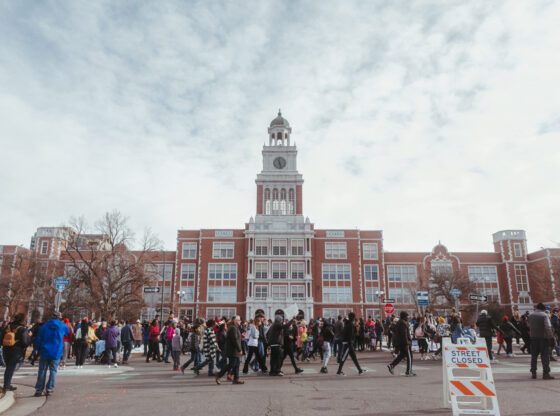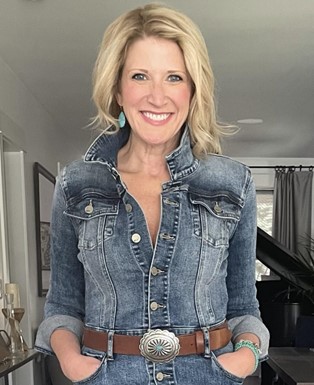When over 64 percent of DU students study abroad, most during fall of their junior year, there is a big increase in the population on campus every January. Students return home from locations all over the world and are anxious to tell their stories. The Clarion interviewed four students who came from four very different locations.
Trina Stewart
Program: Minnesota Studies in International Development, Senegal
Junior political science and economics major, Trina Stewart from Anchorage, Alaska spent four and a half months in Senegal in northwestern Africa. Stewart spent the first three months of her study abroad experience in Senegal’s capital, Dakar, where she took classes with thirteen other Americans at a small research center.
“[I chose to go to Senegal because I’ve always wanted to go to Africa and specifically learn about my own role in the world of development. The program there offered an internship phase, and I was able to use my french.
She focused her studies on the educational system in Senegal but also branched off to take courses about Senegalese culture and history, African development and a Wolof language class. Stewarts classes were conducted entirely in French, although Wolof is more commonly spoken in Senegal and according to Stewart, is the primary of at least fifteen other native languages used throughout the small country.
Stewart spent her last month abroad in the small town of Sokone, where she interned with a local NGO that focused on education and provided academic scholarships to families in need.
“I also took on my own independent research project looking at social inequalities, in particular gender issues in the education system,” said Stewart.
For Stewart, the most memorable aspect of her experience was the people she met.
“It was very difficult at first to form relationships with locals, seeing as French was not my first language, nor anyone else’s in the country, and I was so weak in speaking their native language, Wolof,” said Stewart. “But once those barriers were broken it was incredible to learn how important some people were to me, and I to them. I made real friendships with families, children and peers and they taught me more than any of my classes put together.”
According to Stewart, the most difficult part was her internship in Sokone.
“I was the only foreigner in my town apart from one Peace Corps volunteer whom I rarely saw,” said Stewart. “No one spoke English and very few spoke French, so communicating was extremely difficult. However, it was the absolute best part of study abroad. Not only did I learn so much about myself and grow as a person, but I had an extremely beneficial professional learning experience with my NGO and my research. I witnessed firsthand the hardships of poverty and gender disparities in rural Senegal and saw how different organizations are functioning and approaching these issues.”
Daniel Mason
Program: SIT Public Health, Race and Human Rights Program, Salvador, Brazil
Junior international studies major Daniel Mason from Pico Rivera, CA, spent fall quarter in Salvador, Brazil where he studied public health, race and human rights. His classes included a seminar on these subjects, a field study seminar, a final independent project and an intensive Portuguese class.
“I did was not understand a word of Portuguese, so the people and their words were very foreign to me,” said Mason.
Mason was most surprised by the structure of his classes.
“I’m very used to the way we learn here and so I was surprised to find that the seminar consisted of various lecturers coming in and presenting on different topics instead of having one professor teaching,” said Mason. “Because of this we didn’t get to dive really deeply into given topics, but instead got an overview from each lecturer.”
According to Mason the excursions outside of class proved to be the most interesting. Mason’s group traveled to rural communities outside of Salvador, public health clinics as well as hospitals to add to his experiential learning.
“My favorite part was during our excursion to the rural community of Remanso, where we stayed for a week with a homestay family and participated in activities every day, from going on an 18km river expedition (doing some of the rowing ourselves…) to practicing the Brazilian martial art Capoeira with the children, playing soccer with all of the guys in the afternoon and learning how people make a living from the local artisans,” said Mason. “I got to learn about a completely new way of life and take a break from the world of technology.”
During Mason’s free time, he traveled to the major cities in Brazil.
“In a city like Salvador, the third largest city in Brazil, there was always something to do,” said Mason. “Cultural landmarks, concerts, clubs, bars, the beach of course, jogs around the lake, local shopping centers; there were tons of options. Trying all the amazing food was also a fun way to enjoy our time there.”
Mason would absolutely recommend his program for students next year who are looking for a more structured experience, but warns of the difficulties that come with studying abroad.
“There will inevitably be lots of surprises and difficulties abroad, and you can’t do much to prevent that,” said Mason.
“The philosopher Epictetus puts it best, ‘It’s not about what happens, it’s how you react that matters,’ so make the best of the experiences that your time abroad throws at you.”
Gabe Rusk
Program: Visiting Student Program, Oxford University, England (non-DU affiliated)
Junior philosophy and religious studies major, Gabe Rusk from Denver decided to take a slightly different route than most DU students for his study abroad experience. He is currently studying for a full year at Oxford University in England as a part of their visiting students program.
A big motivation was its emphasis on debate.
“When I was accepted into the visiting student program at Oxford, one of my goals was to make the travelling debate team at the university,” said Rusk. “Oxford has consistently had the best debate team in the world among such heavyweights as Cambridge, Yale, Harvard, Cornell and Monash. DU’s debate team, a strong and up and coming team, participates in the same British-Parliamentary format as Oxford.”
Rusk has been very successful in his pursuits as a debater, even winning the “Best Floor Speech Prize from Oxford.”
“With the aid of Lords, Members of Parliament and several professors I was one of a handful of students to debate assisted suicide in front of hundreds of Oxford students and faculty,” said Rusk.
Rusk also enjoys learning through the unique method of single weekly assignments called tutorials.
“Tutorials are the single best educational tool I have ever experienced,” said Rusk. “Once a week an assigned professor, an expert in their field for example let’s say philosophy of religion, will give you a reading list and an essay. Come next week you will bring that essay and will have to discuss said essay [with the professor]. This sort of environment forces you to think critically about what you write and back up your assertions.”
Beyond the walls of the university, Rusk also loves the city of Oxford.
“Oxford is incredible, the people here have such a different sensibility,” said Rusk. “Despite being a decent-sized college town, the city is surrounded by the English countryside. At any moment if you want to escape the stoned and baroque corridors or the dark pubs you can walk ten minutes out to rolling green hills. Oxford is about an hour and half from London which allows for some fun weekend trips.”
While most students have already returned from their study abroad experiences, Rusk is glad to be continuing for the year.
“Studying for a year expands your horizons to the culture, community and academia of a whole new world,” said Rusk. “Even in a developed Western nation such as England one can be exposed to a new life style. Be that life style clothes, vernacular, or even food I think my return is much greater in a year-long program.”
While he doesn’t regret his decision for a second, Rusk only recommends his program for the “strong-willed,” citing his disappointment in DU for cutting the programs funding and his inability to use the Cherington Scholarship for an unaffiliated program.
Natalie Margason
Program: Mendoza, Argentina One Year Full Immersion Program
Senior culture studies major, Natalie Margason from Centennial, CO, pursued a one year “full immersion” program in Mendoza, Argentina from February to December of last year. She enrolled in international relations classes at both of the local universities, Universidad Nacional de Cuyo, and Universidad de Congresso.
“It was fun to experience the differences between the national university [Universidad Nacional de Cuyo] and the private university,” said Margason. “My classes were all in Spanish and I learned so much about international relations from a Latin American perspective.” Margason lived with a host family for the duration of her experience.
“When my host family picked me up after orientation I was nervous about speaking in Spanish! They were so kind and warm and called me ‘Nati’ for short. I felt like I was part of the family right away.”
Margason said she felt welcome at her universities as well.
“My first day of class a girl by the name of Fernanda befriended me and immediately welcomed me into her group of friends,” said Margason. “We studied together, went to the park together, and even traveled together! I was so blessed that she invited me into her life!”
Margason said that being abroad for a whole year really added to her cultural experience.
“I was able to fully immerse myself in the culture in ways that I would not have been able to do in just one semester,” said Margason.
Margason would absolutely recommend her program for future students.
“The most surprising parts of being abroad were the incredible personal growth I experienced and the language skills I gained,” said Margason. “The hardest part was learning ‘Argentine Spanish’…it’s not anything like they teach you in class!”











